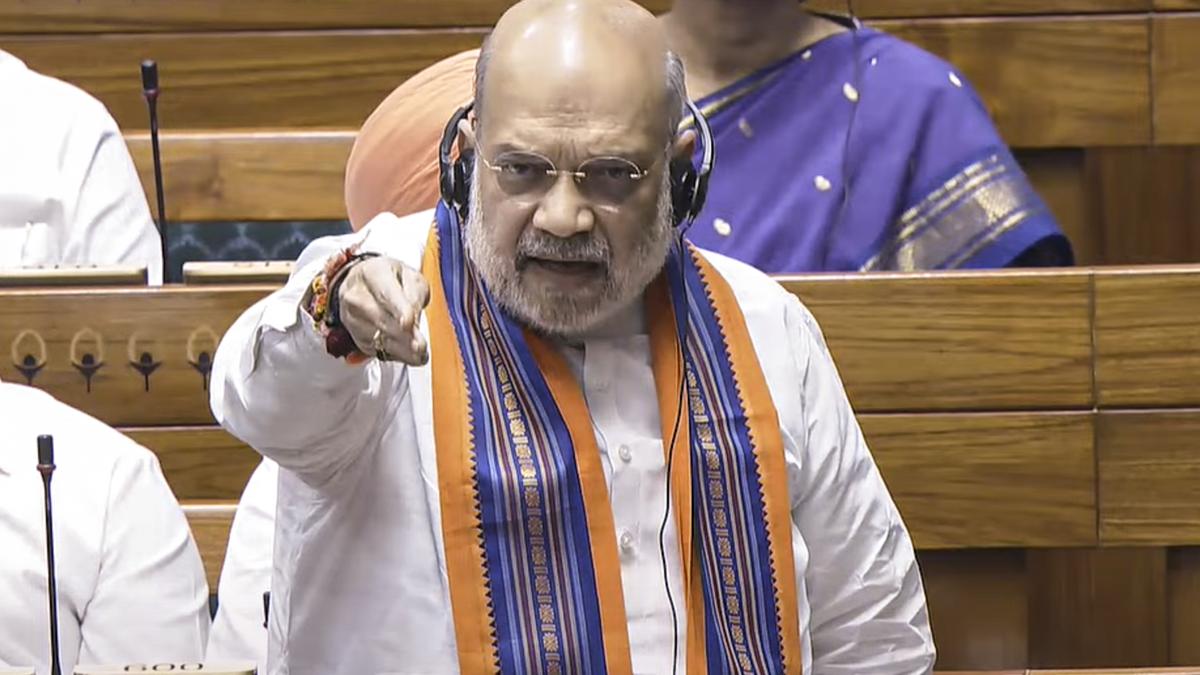ARTICLE AD BOX
Last Updated:August 20, 2025, 13:24 IST
This decision, delivered on August 18, establishes that a woman can be prosecuted under the Act, including for offences of penetrative sexual assault, against a minor boy

The HC held that even Section 306 IPC was not attracted in the present case.
In a significant and progressive judgment with wide-reaching implications, the Karnataka High Court (HC) has unequivocally ruled that the Protection of Children from Sexual Offences (POCSO) Act, 2012, is gender-neutral.
This decision, delivered on August 18, establishes that a woman can be prosecuted under the Act, including for offences of penetrative sexual assault, against a minor boy.
The bench of Justice M. Nagaprasanna dismissed a petition filed by a 48-year-old woman seeking to quash criminal proceedings against her. The petitioner was facing charges under Sections 4 and 6 of the POCSO Act for allegedly sexually assaulting her minor neighbor.
The case emerged from a complaint filed by the mother of the victim, a boy who was 13 at the time of the alleged assaults between February and June 2020. The complaint detailed that the accused, an artist, took the boy to her bedroom on several occasions under the pretext of giving him art lessons. There, she allegedly engaged in sexual acts, forcing the boy to participate and threatening him into silence. The boy and his family relocated to Dubai shortly after the incidents.
It was only in February 2024, after undergoing therapy, that the boy confessed to his mother about the trauma, leading to the registration of a First Information Report (FIR) at the HAL Police Station in Bengaluru.
The accused woman’s defence centered on the argument that a woman could not be a perpetrator of penetrative sexual assault and that the POCSO Act’s use of the pronoun “he" in certain sections meant the law was exclusively meant for male offenders. Her counsel also pointed to the significant delay in filing the complaint and the age difference between the accused and the victim.
However, the state and the complainant’s counsel countered these claims, citing public data indicating that a significant percentage of 54.4% of sexual abuse cases involve minor boys as victims. They emphasised that the law’s intent and language, particularly the term “person" used in Section 3, are inclusive of all genders. They also referenced Section 8 of the Indian Penal Code, which clarifies the gender-neutral meaning of the pronoun “he."
A similar precedent set by the Delhi High Court was also brought to the court’s attention, along with the scientifically recognised phenomenon of delayed reporting in child sexual abuse cases due to psychological trauma.
In its judgment, the High Court addressed and rejected the petitioner’s core arguments. The court held that the legislative intent behind the POCSO Act and its 2019 amendment was to be a progressive, gender-neutral statute. It clarified that offences under Sections 4 and 6 are not limited to physical penetration by a male and that the broad language of Section 3 of the Act, which refers to a person who “makes the child to do so with him or any other person," includes a wide range of sexual acts.
The court also dismissed the arguments regarding the delay in reporting, acknowledging that such delays are common in cases of child abuse. It further rejected the defence’s attempt to use the absence of a male potency test to vitiate the proceedings, stating that the burden of proof for such a defence rests with the accused.

Salil Tiwari, Senior Special Correspondent at Lawbeat, reports on the Allahabad High Court and courts in Uttar Pradesh, however, she also writes on important cases of national importance and public interests fr...Read More
Salil Tiwari, Senior Special Correspondent at Lawbeat, reports on the Allahabad High Court and courts in Uttar Pradesh, however, she also writes on important cases of national importance and public interests fr...
Read More
- Location :
- First Published:
August 20, 2025, 13:22 IST
News india Gender No Bar In Child Sexual Assault Cases Under POCSO Act: Karnataka High Court
Disclaimer: Comments reflect users’ views, not News18’s. Please keep discussions respectful and constructive. Abusive, defamatory, or illegal comments will be removed. News18 may disable any comment at its discretion. By posting, you agree to our Terms of Use and Privacy Policy.
Read More



.png)
.png)
.png)
















 1 hour ago
3
1 hour ago
3









 English (US) ·
English (US) ·